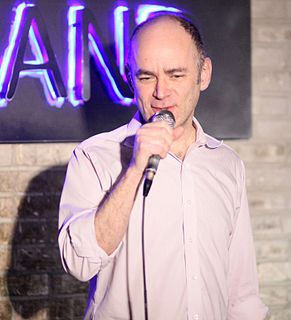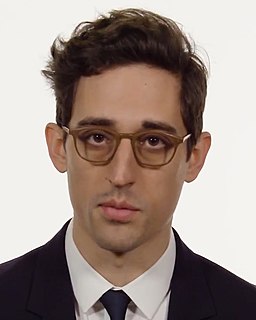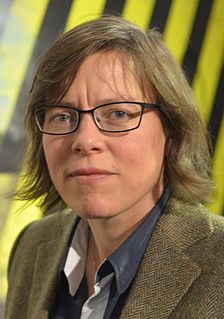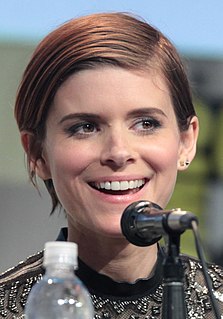A Quote by Warren Beatty
I always feel that I'm sort of co-directing with my fellow actors. And you can tell when something's going on that really interests them and they approve of. And then you can sort of tell when there's not.
Related Quotes
I've had shows where you think, "Is this going well? I can't tell," and then you say goodnight and you get this ovation. They're sorta like a theater audience. I've learned that much; that they're not always going to be doing backflips - but I'll never figure it out. Because sometimes you walk up there, and they're so excited, and then other times, it's just... But sometimes an audience is bad, and you can tell them they're bad, and that sort of breaks the ice a bit.
Comedians work great as actors because they're good under pressure. With a lot of actors, you have to make them feel like everything's going really well to get a good performance out of them. But, if you have a comedian on the set, you can tell them, 'Hey, you really are screwing this up,' and then they just get better.
Having been an actor in Hollywood for a certain amount of time, I always felt a pressure to be sort of a neutral person. 'Don't do anything to your hair. Don't tell them your age. Don't tell them you're gay. Don't tell them anything that could limit you, specify you as a person.' I always hated that, actually moved out of L.A. because of that.
It`s always been the same for me. I`ve always enjoyed acting, and I really love good actors; they`re such unique characters. I wish I could tell stories well, or tell a joke. Any time someone can do that it`s so satisfying. Sean Penn, for instance, is a really good actor, and he can tell a good joke or story. But it`s hard to do. Most actors have special talents that make them attractive, but they`re often odd characters.
The future of ballet is really in the hands of the creators, so if it's something that interests them to push the envelope with gender roles, then I think it will change. But if that's not of interest to a dance-maker, if their interest is to sort of preserve the way things have been done for the past 200 years, then nothing is going to change.
It [going from mini-series to series] was never even discussed because it [The Starter Wife] was, you know, an adaptation of a novel. And we - the mini-series encompassed the whole novel. And so it was always going to be a finite sort of event. And then I imagine when people started to really respond to the show and then we got ten Emmy nominations, USA sort of said, "Oh, I think maybe we have something here."
You're in a movie, so you have to think about how something plays. It's not like you're thinking about how an audience is going to react. You're trying to present the story. You're trying to illuminate the lives of these people in the story. So I'm thinking about how my behavior as this character best illuminates what's going on with them in this moment in time. I always say it's sort of the director's job. People think that the directors direct actors. No. Really, what the director's doing is directing the audience's eye through the film.




































